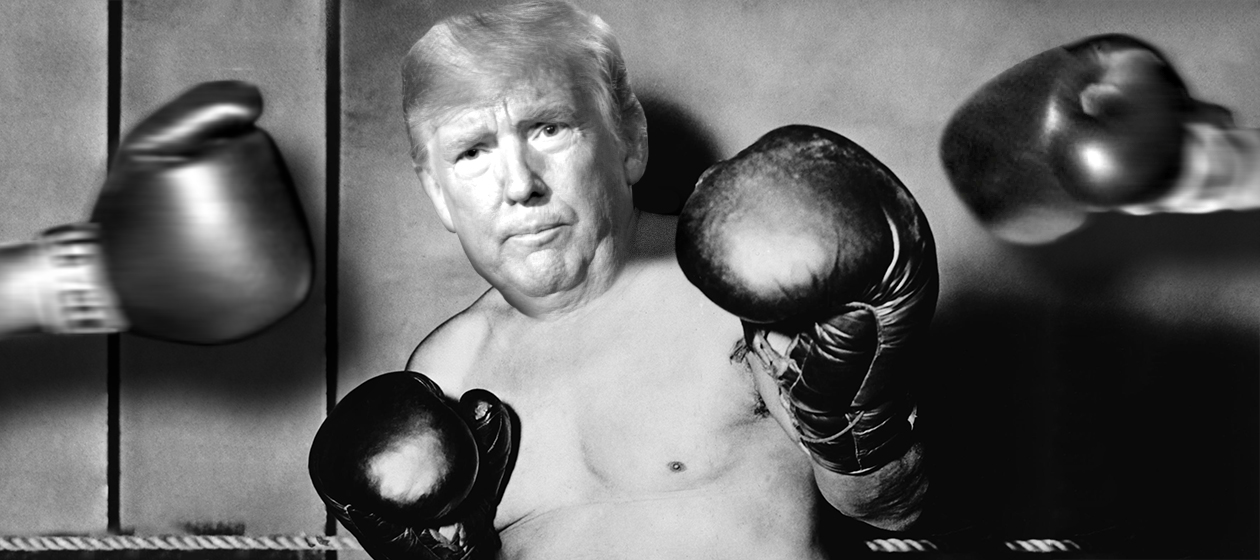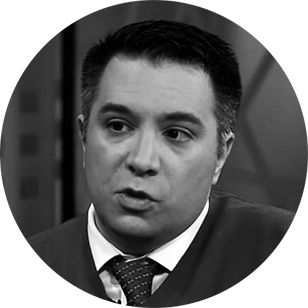Trump can't fight China and North Korea at the same time
America will need China to apply leverage in its negotiations with North Korea ...


A free daily email with the biggest news stories of the day – and the best features from TheWeek.com
You are now subscribed
Your newsletter sign-up was successful
No nation, not even one as powerful as the United States, can do everything everywhere. Even a superpower must decide what it must prioritize, what it can tackle now and in the future, and, sadly, what challenges it must let slide from its global to-do list.
The time is rapidly approaching when Team Trump will need to make an important decision. President Trump can either take on a rising China or seek to contain North Korea's nuclear ambitions. America simply can't do both.
The reasons are obvious. Prior to meeting with North Korean dictator Kim Jong Un last month in Singapore, the Trump administration had settled on a policy of "maximum pressure" on North Korea. This is something of a rebranded containment strategy with a 21st century tagline, with the goal of ensuring that Pyongyang is economically and diplomatically cut off from the rest of the world.
The Week
Escape your echo chamber. Get the facts behind the news, plus analysis from multiple perspectives.

Sign up for The Week's Free Newsletters
From our morning news briefing to a weekly Good News Newsletter, get the best of The Week delivered directly to your inbox.
From our morning news briefing to a weekly Good News Newsletter, get the best of The Week delivered directly to your inbox.
While this policy certainly had its share of flaws, it was widely credited with weakening the North Korean economy, so much so that some experts believed that Pyongyang might run out of foreign exchange reserves by the end of the year, or perhaps sooner.
But there is a huge weakness in such a strategy: It relies on America's top geopolitical competitor to enforce it.
With 90 percent or so of the Kim regime's exports going through China, maximum pressure will only be as successful as Beijing allows it to be.
And President Trump is in the midst of launching a full-scale trade war with China.
A free daily email with the biggest news stories of the day – and the best features from TheWeek.com
Washington and Beijing came together over a shared fear of a rising Soviet Union in the 1970s. That rationale died when the USSR was chucked into the ash heap of history. And what replaced those shared interests — a mutually profitable economic relationship, but much more favorable to China — is dying a quick death under the weight of a trade war that is becoming costlier by the day.
But it's not just trade issues. This latest conflagration is only adding to a growing list of problems between the world's two largest economies and militaries. At its core, both sides simply see the world very differently.
Beijing, feeling a sense of historical shame and anger for what the Chinese see as a century or more of humiliation by Western powers, see it as their right to reclaim the mantle of leadership in Asia — slowly pushing America out.
America, for its part, hopes to maintain the international order it built in Asia that has ensured a historic level of peace and prosperity — with Washington remaining the unquestioned dominant power. The Trump administration hopes to contain China's aspirations, in what most likely will end up in a containment strategy, as Beijing grows ever stronger and likely bolder in its aspirations.
This pure clash of national interests is taking place all over Asia. You can see it in the highly contested South and East China Seas, and in the fight over the final status of Taiwan. China and the U.S. are in fundamental conflict.
The Trump administration could box in North Korea, constrain its ability to make more nuclear weapons and missiles, and maybe even force it into meaningful negotiations where Kim gives up his deadly weapons. But to do that, America needs China's help.
Alternatively, Team Trump can fully take on China, a budding superpower that will not only challenge America's interests all over Asia and the wider Indo-Pacific, but around the world. Washington can certainly take on Beijing — but the price might be a nuclear North Korea. Because without China's aid, what leverage does America really have over Pyongyang?
Trying to contain both Pyongyang and Beijing will only lead to a poorly executed strategy in which America does not accomplish either objective.
Washington must choose.
Harry J. Kazianis is director of defense studies at the Center for the National Interest, founded by former U.S. President Richard M. Nixon.
